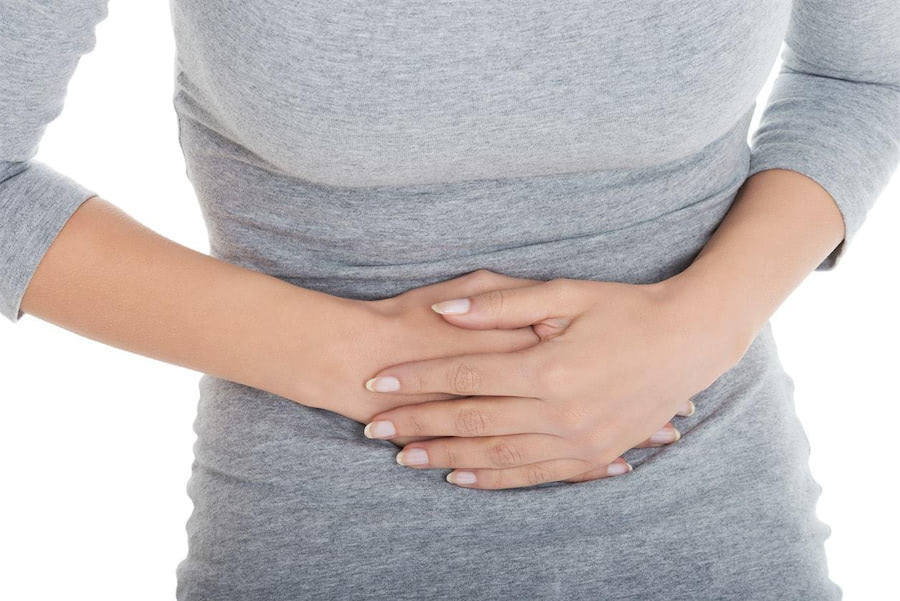
Fatty liver is a medical condition in which excess fat accumulates in the liver cells. While the fatty liver can be a sign of serious diseases such as cirrhosis or hepatitis, most people with fatty livers have no symptoms. Research suggests that nearly 1 billion adults worldwide may have nonalcoholic fatty liver disease (NAFLD). In its early stages, NAFLD doesn't cause any obvious symptoms. However, if it progresses to more advanced stages, it can lead to scarring and permanent damage to your liver.
Liver function tests performed on patients diagnosed with NAFLD typically show slightly elevated enzyme levels -- but not to a level high enough for a doctor to diagnose alcoholic liver disease. Later stages of NAFLD may cause weight loss, weakness, poor appetite, and abdominal pain.
The main risk factors for fatty liver are obesity, diabetes, high levels of triglycerides in the blood (from heavy drinking or diabetes), uncontrolled high blood pressure, and a sedentary lifestyle.
Typically, you are diagnosed with the fatty liver if your transaminases are elevated to greater than two times the upper limit of normal. If this is true for you, then that means that there is more fat in your liver cells than normal. Some non-laboratory signs may give your doctor reason to suspect fatty liver disease:
- Abdominal bloating after eating Carbohydrates (sweets/starchy foods) can indicate an increased accumulation of fat within the liver cells.
- Stomach pain (belly ache) after eating Carbohydrates may indicate that the body is having issues processing sugars; this can be an early sign of diabetes, which may mean that your body is also not metabolizing fatty acids properly.
- Joint Pain, though many things can cause it, can be associated with fatty liver disease because fat tends to build up in the joints as well. This does not necessarily mean you have fatty liver, but if other symptoms are present, this should be discussed with your doctor.
Fatty Liver Disease Prevention
The best way to prevent fatty liver disease is to maintain a healthy weight through sound nutrition and exercise. Alcohol, or keep your intake moderate.
-consuming less than 20 grams of saturated fat or 200 calories from alcohol per day can also help reduce your risk of NAFLD.
The best way to prevent fatty liver disease is to maintain a healthy weight through sound nutrition and exercise. Alcohol, or keep your intake moderate. Consuming less than 20 grams of saturated fat or 200 calories from alcohol per day can also help reduce your risk of NAFLD.
Specifics Regarding Your Question:
As the article states, you are more likely to develop fatty liver if you are obese (overweight), diabetic, have high blood pressure (hypertension), or lead a sedentary lifestyle. You may want to take special care in dieting responsibly, not drinking too much alcohol (less than 20 grams of saturated fat or 200 calories from alcohol per day ), and maintaining an exercise regime to keep stress on your liver low.
- What are the most common causes of fatty liver?
" Risk factors for fatty liver disease include obesity, diabetes, high levels of triglycerides (fat) in the blood (from heavy drinking), uncontrolled high blood pressure, and a sedentary lifestyle."
- How does fatty liver change my lifestyle?
" The main risk factors for fatty liver are obesity, diabetes, high levels of triglycerides in the blood (from heavy drinking or diabetes), uncontrolled high blood pressure and a sedentary lifestyle."
-Can fatty liver change my diet? Do I have to stop drinking?
" The best way to prevent fatty liver disease is to maintain a healthy weight through sound nutrition and exercise. Alcohol, or keep your intake moderate.
-consuming less than 20 grams of saturated fat or 200 calories from alcohol per day can also help reduce your risk of NAFLD."
"The best way to prevent fatty liver disease is to maintain a healthy weight through sound nutrition and exercise. Alcohol, or keep your intake moderate. Consuming less than 20 grams of saturated fat or 200 calories from alcohol per day can also help reduce your risk of NAFLD."
